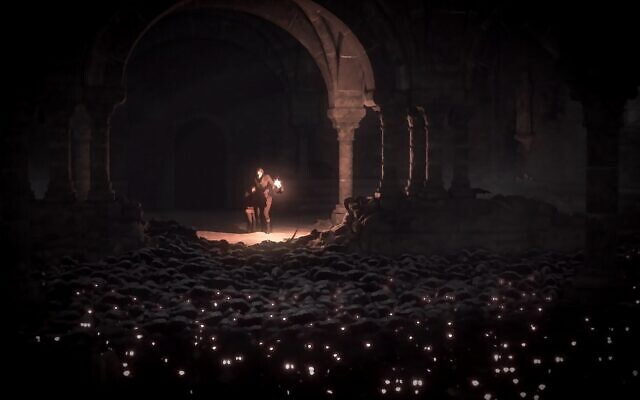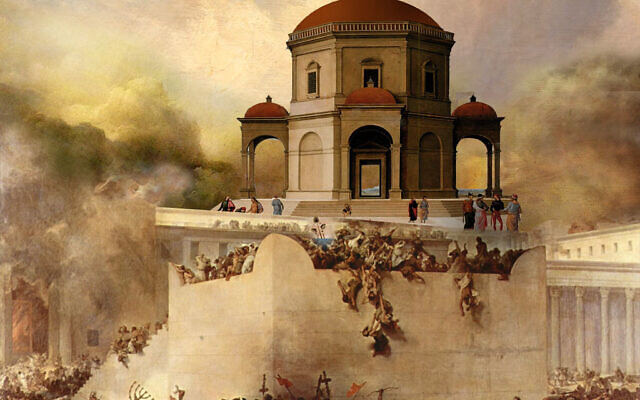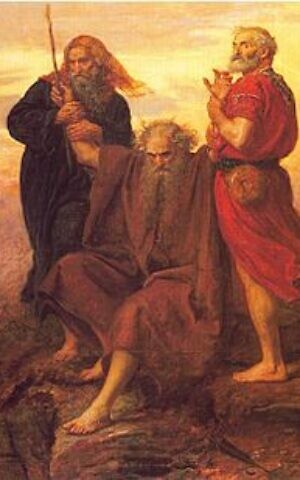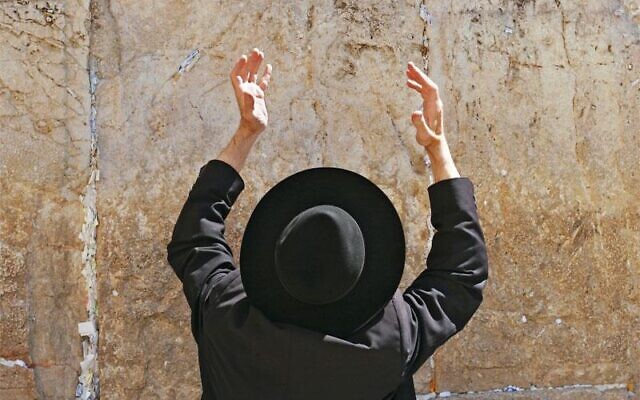Fighting Modern Plagues and COVID
The AJT asked Jewish community leaders their take on contemporary plagues and their relation to those of ancient Egypt.
When considering how the Ten Plagues of the Passover story compare to modern plagues, COVID-19 might be seen as a plague of darkness or for causing loneliness, polarization and isolation.
The AJT asked several Jewish community leaders to name a few modern plagues and how they compare to those of the Exodus story captured in the Passover haggadah.
Rabbi Mark Zimmerman of Congregation Beth Shalom compared current times to the plague of darkness from the seder story. “They just don’t see each other. They don’t see each other in the sense that they are on the opposite political spectrum, utterly demonizing the other.”

He added that the plague is pervasive. “This is a drag, not just in the Jewish community, but also in the general community. It’s this toxic idea that anybody who takes a different point of view than ‘me’ is evil. We see this in the Jewish world with delegitimization.”
Zimmerman believes that people cannot freely disagree anymore. Just weeks ago, he feels he was slammed because he cheered a majority Supreme Court decision in Israel that recognized Conservative conversion for the purposes of making aliyah. “I suppose it is sad to see how divided we are within our religion. … The strict rules of certain denominations. The opposition is clashing; ‘many different shades of black.’”
The Conservative rabbi also named another set of modern plagues: loneliness and isolation. “We pray communally. We pray in a minyan, whether it is Passover seder, Shabbat. This idea that during the seder we have to be alone has been a tremendous plague.” He emphasizes the toll it takes, people depressed due to loneliness and isolation. “We are not supposed to live in isolation. We are about hachnasat orchim (welcoming guests).”

Rabbi Spike Anderson of Temple Emanu-El believes there are two current underlying plagues in the world: sinat chinam (baseless hatred) and lashon hara (derogatory speech).
He said that sinat chinam, for example, is why the Second Temple was destroyed. “The physical plagues like COVID-19, inequality in wealth, should all be addressed,” he said.
“But if we sit by and not address it when it becomes a problem then, just like a plague, it begins to festers. And now we are in a culture of it where it’s not the exception, but rather it becomes the rule, and we don’t want this to become the rule because then we are in deep trouble.” He referred to any problem that surfaces and becomes an extreme cause of divide.
Anderson said that if a suitable remedy is found to solve the underlying plagues that are counterproductive to humanity, then there can be room for “an honest culture fulfilled with righteousness, mercy.”
Judaism encourages differing opinions, he said. “If you look at the Talmud itself, the pages preserve margins for arguments. Big time arguments from people who vehemently disagree with them. At the time, these arguments were very long and detailed.” Today, split opinions in society are viewed differently. “We are not only not respecting differences, but we are also canceling differences with big wide paint brushes.”
Rabbi Ilan Feldman of Congregation Beth Jacob claims that “everybody thinks that they’re entitled to an informed opinion about everything. Everyone has an opinion about everything and cannot be changed by facts.”
He believes that the byproduct of the internet and information age, allowing anything to be Googled, is catastrophic for humanity. “You can’t have a discussion with anybody anymore because nobody is intrigued by another person’s point of view.” For him that’s a plague because the human race doesn’t do well when it cannot dialogue with each other.
Feldman called the social media age a plague and called it ironic that people are lonely when they’re virtually surrounded by hundreds of people. “There is an irony that at a time of social media, while people are instantly connected to thousands of people, people seem to feel very alone and disconnected.” He added that it is a lack of “belonging to a social community.”

Just like the Ten Plagues imposed onto Pharaoh, Feldman believes there is a current divine intervention that calls for humanity to change its behavior and realize that G-d is running the show, not them. He admitted that “G-d is trying to teach us humility. As a society, we are very arrogant. We don’t know how to manage intergender relationships, our lives, marriage, single lives. We are struggling with everything and we need a little bit of humility. The message is to live with awe and to be humble. Awe that the world can change in a month.”
Renee Kutner, chief operating officer of the Jewish Federation of Greater Atlanta, agreed that the modern plagues are the manifestation of sheer isolation, loneliness, and a mass divide. “We have a plague of divisiveness and polarization. I think it has impacted society and the Jewish community and not for the better. I think as the world around us has gotten more complicated, it has become easier to think in a world of extremes.”
She conceded, “The Jewish community used to be better at coming together than at what drives us apart.” Kutner is adamant that the community has been driven apart by politics more than ever. When asked about the relation between the ancient and modern plagues, she replied, “They are philosophically the same in the sense that they can destroy people. Food insecurity, divisiveness where people are lonely and isolated.”
While the ancient plagues only affected the Egyptians, Kutner said no one is impervious now.
“If anybody thinks that Jews suffer any less in food insecurity than any other population, they are blatantly wrong.” And while COVID shed light on those issues, it also encouraged unity, she said. “You saw a lot of creativity of bringing people together. We are a religion whose entire paradigm is about being together, bringing people together. Thus, it is very hard when that is taken away from you.”
Shifra Sharfstein, co-director of Chabad of Downtown Universities in Atlanta, said that while there is no doubt that we have a plague on our hands, it’s important how we survive it. She brings an excerpt from the Kabbalah which highlights that “light that comes from a place of darkness then is the most powerful light that exists.” She stressed, “As Jewish people, the message that we’ve always been taught is that challenges are only there to help us climb farther. Challenges are there in order for us to accomplish far more than we ever could. Darkness is only there to transform it into light.”




comments